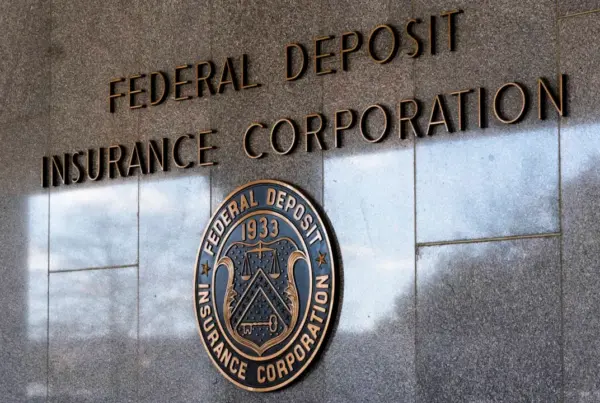I. Introduction
The Federal Deposit Insurance Corporation (FDIC) has set forth crucial guidance to aid financial institutions in Pennsylvania affected by the devastating Tropical Storm Debby. The storm, which caused considerable flooding and property damage, prompted the FDIC to issue regulatory relief and support measures on September 25, 2024. This memorandum discusses the FDIC’s guidance, the implications for banks, and recommended actions to ensure effective community recovery and reputational enhancement. Customer service adaptation, operational adjustments, and regulatory compliance are key focus areas for banks aiming to assist borrowers and maintain community trust during this challenging time.
Key Points of the FDIC Guidance
Disaster Overview: Tropical Storm Debby wreaked havoc across several Pennsylvania counties, prompting FEMA to declare a federal disaster on September 11, 2024. The FDIC guidance aims to alleviate the challenges financial institutions face while facilitating support for affected borrowers.
- Support for Borrowers: Financial institutions are encouraged to offer alternative repayment terms, restructure loans, and ease new loan conditions. This approach is essential for community recovery and should adhere to sound banking practices.
- Community Reinvestment Act (CRA) Consideration: Banks can gain favorable CRA consideration for engaging in community development initiatives targeting federally designated disaster areas.
- Regulatory Relief: The FDIC provides regulatory relief, including leniency in filing and publishing requirements for the affected institutions.
- Reporting and Compliance: Institutions anticipating delays in filing critical reports must communicate with the New York Regional Office, allowing the FDIC to assess and accommodate deadlines impacted by the disaster.
- Temporary Facilities: Expedited processing for temporary facility operations will ensure banking services remain accessible to affected communities.
Implications for Financial Institutions
Given the FDIC’s guidance, financial institutions must strategically adapt operations to manage increased customer service demands and implement the recommended disaster relief measures. They must balance regulatory compliance with operational flexibility to support community recovery effectively. By proactively extending support to affected borrowers, banks can enhance their reputation, build community trust, and foster long-term relationships.
Recommended Actions
Financial institutions should undertake the following actions to align with FDIC guidance:
- Assess Impact: Conduct a comprehensive assessment of the storm’s impact to identify borrower needs and operational challenges.
- Implement Relief Measures: Develop and promote disaster relief programs, providing loan modifications and fee waivers to support customers facing hardship.
- Enhance Communication: Ensure clear communication of relief options to customers, showcasing the institution’s dedication to aiding recovery efforts.
- Collaborate with Local Agencies: Engage with local government bodies and disaster response organizations for coordinated recovery strategies.
- Monitor Compliance: Maintain compliance with applicable regulations, utilizing the FDIC-provided flexibility to support recovery measures.
- Request Temporary Facilities: Promptly seek approval for operating temporary banking facilities to maintain service continuity.
V. Conclusion
The FDIC’s guidance in response to Tropical Storm Debby provides a structured framework for financial institutions in Pennsylvania to support affected communities. By assessing impact, implementing relief measures, and fostering collaborations with local agencies, banks can facilitate community recovery while upholding regulatory obligations. Proactively assisting borrowers not only strengthens the institution’s reputation but also reinforces its commitment to community resilience. Effectively navigating these guidelines will ensure that financial institutions play a pivotal role in the disaster recovery process, benefiting both their operations and the communities they serve.


